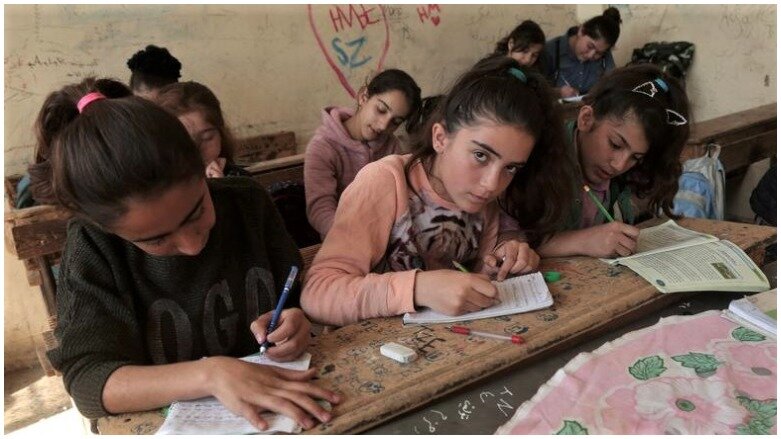Syrian government says it's open for decentralization, Kurdish education

ERBIL (Kurdistan 24) - Darem Tabbaa, Syria's education minister, said last week that the Syrian Kurds should be allowed to learn Kurdish the same way other non-Arab Syrian minorities learn their respective languages.
"If there is a desire to learn the local language, this is available in accordance with the law. We allow Armenian schools to teach the Armenian language for two hours, as well as Assyrian and Circassian," he said in an interview with al-Watan, a well-known newspaper in Damascus.
"Our Kurdish brothers can also learn their language for two hours, which is a legitimate right. Kurdish is a local language that we cherish, along with the other languages of Syria," he said, the Syrian Observer reported.
Two weeks ago, Syrian President Bashar al-Assad talked about decentralization as a possible solution to the decade-old Syrian crisis. His comments were interpreted as a message to the Kurdish-led Autonomous Administration of North and East Syria (AANES), which has called on Damascus in the past to recognize its local autonomy in northern Syria.
The Syrian president stressed that "decentralization achieves balanced development between the richest and poorest regions," the Syrian state news agency SANA reported.
"Here comes the role of the local Administration… the local councils are most capable to recognize their local interests and propose solutions," he added.
Aron Lund, a Middle East researcher at the Swedish Defence Research Agency (FOI), told Kurdistan 24 that the Kurds have never been allowed to teach Kurdish, which was part of a "deliberate marginalization of the Kurdish community in Syria that began even before the Baath government came to power in the 1960s."
Moreover, when Assad came to power in 2000, he promised to normalize the Kurdish situation.
"Since 2011, there have been some steps in that direction with the citizenship issue, for example, more or less resolved," Lund said. "People have been offered citizenship if they didn't have it before."
In 1962, the Syrian state stripped Syrian Kurds of their citizenship after a census. As a result, 300,000 Syrian Kurds were stateless in 2009. However, in 2011, this was partially solved through "Presidential Decree 49." Although the majority got citizenship, there are still thousands without it.
Read More: Thousands of Syrian Kurds continue to suffer from statelessness
Lund added that in the past Kurdish education was "seen as somehow promoting separatism or foreign involvement via other minorities. So, for the Syrian Minister of Education to say this is a pretty dramatic step."
It has been one of those issues that the Syrian government "has held back from giving, because they want something in return," he added.
Therefore, Lund said there could have been a tradeoff between the SDF and Damascus, perhaps on economic issues. Generally speaking, Damascus appears to be angling for control over schools in northeast Syria that are now under the control of the local Kurdish-led authorities.
Since 2021, the local Autonomous Administration of North and East Syria, also known as AANES, has completed its own education textbooks covering all elementary to secondary level classes. It also banned the Syrian government curriculum altogether in areas under its control.
However, Lund said the speech by the Syrian president on decentralization is nothing new.
"They might be planning some sort of decentralization drive, and if they do then I'm sure they've had the SDF angle in mind, but from that speech you cannot infer very much," he said.
Furthermore, Nicholas Heras, a Senior Analyst and Program Head for State Resilience and Fragility at Newlines told Kurdistan 24 that it is possible "the Assad government is being pressured by the Russians to offer sweeteners to the Kurds to get them back to the negotiating table."
"Both Kurdish education and decentralization are bare minimum requirements for the leadership of the AANES to enter into a serious condominium with the regime in Damascus," he said.
So far, the Syrian Kurdish leadership has responded positively to the moves by Damascus. However, talks between both sides on decentralization failed in the past, with the Kurds accusing Damascus of being stuck in its old pre-2011 authoritarian mindset.
During an August 18 seminar in Qamishli, President of the Executive Board of the Syrian Democratic Council (SDC) Ilham Ahmad said Assad's speech was "positive" because the President of the Republic had uttered it, reported the North Press news agency.
"We have said it over and over again, Syria will not go back to before 2011, and today he himself (Assad) admits that," North Press quoted her as saying.
